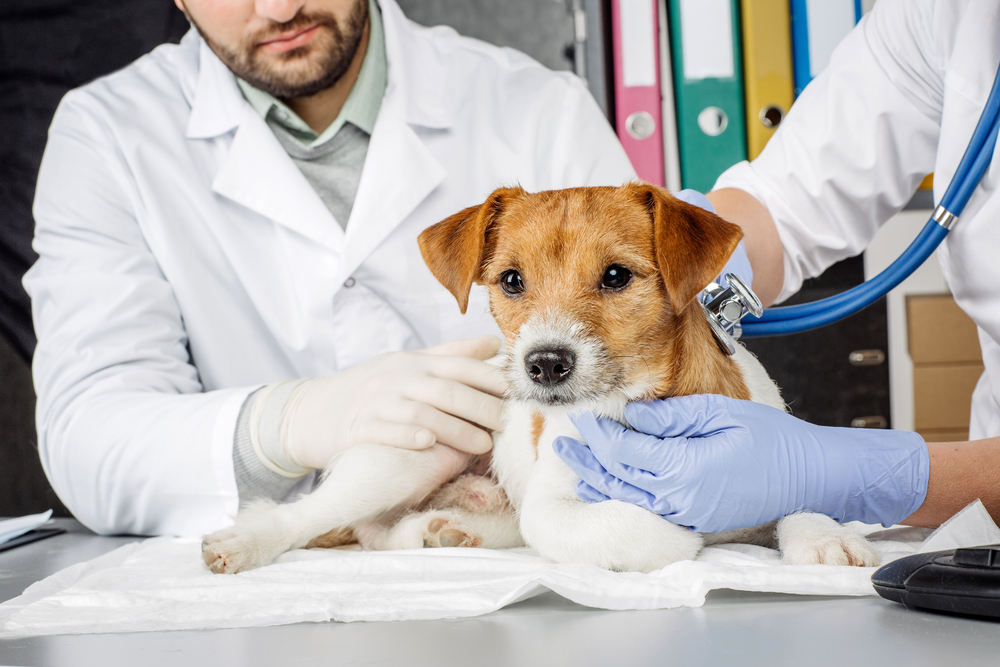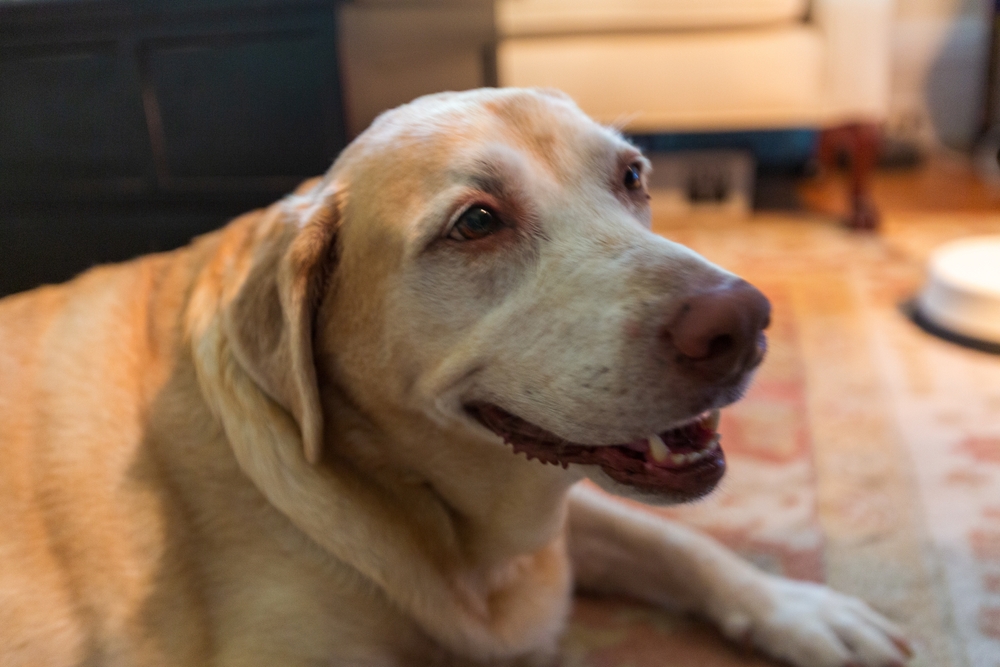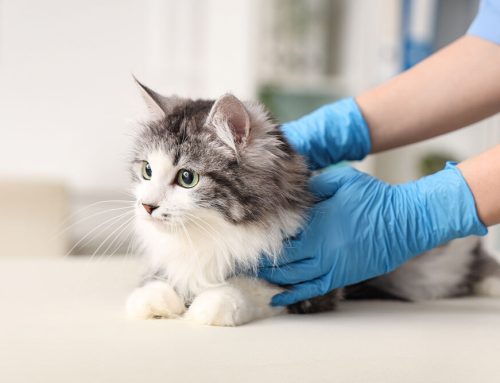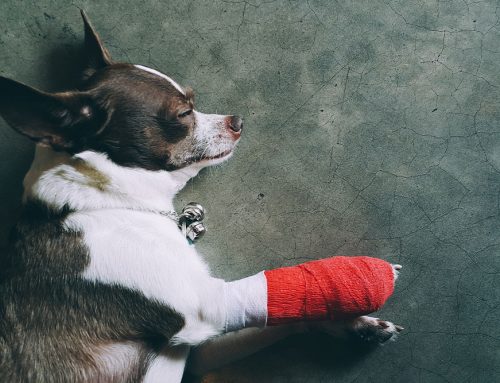Scooting Relief: How Laser Therapy Can Alleviate Pet Discomfort
If your dog has been dragging their hind end across the floor- or obsessively licking at their rear- you’re probably wondering what’s going on. And the smell? Whew. While scooting might seem silly or harmless, it’s usually your pet’s way of saying, “Hey, something back there doesn’t feel right.”
At Homestead Animal Hospital in Mechanicville, New York, we understand how uncomfortable (and occasionally embarrassing) this behavior can be. More importantly, we know it’s often a sign of anal gland issues- something that can cause chronic pain, inflammation, and even infection if left untreated. Let’s explore the most common causes of scooting, how to manage them, and how advanced tools like laser therapy can help bring your pet lasting relief.
What Are Anal Glands and Why Do They Matter?
Anal glands are small scent glands located near your pet’s anus. Normally, these glands release a tiny amount of fluid during bowel movements, helping pets mark their territory. But when the glands don’t empty as they should, they can become impacted, inflamed, or infected- causing pain and discomfort during sitting, walking, or defecation.
In some pets, especially small breeds or overweight dogs, anal gland issues become a recurring problem. Left untreated, the glands can abscess and rupture, and in rare cases, develop tumors such as apocrine gland anal sac adenocarcinoma (AGASACA), a form of cancer that requires early diagnosis and aggressive treatment.
How Do You Know It’s an Anal Gland Problem?
Not every scoot is an emergency, but persistent scooting- especially when paired with other signs- deserves a closer look. You might also notice:
- Frequent licking or biting at the rear
- A sudden foul, fishy odor
- Difficulty defecating or visible straining
- Swelling or redness near the anal region
- Signs of discomfort when sitting or being touched near the tail
If this sounds familiar, don’t ignore it. Many pets suffer in silence, and anal gland issues can quickly escalate from minor discomfort to major medical events. Not sure if full anal glads are the problem? Check out this guide.
What Causes Anal Gland Trouble?
Several factors can contribute to gland dysfunction, including:
- Impaction, where secretions become too thick to empty naturally
- Infection (anal sacculitis), often occurring after impaction
- Abscess formation, which can rupture painfully if left untreated
- Diet and digestion, particularly low-fiber diets that lead to soft stool or pets with diarrhea
- Genetics, with certain breeds like Chihuahuas, Dachshunds, and Bulldogs being more susceptible
Comprehensive Treatment with a Modern Touch
We’ll begin with a thorough physical exam, including manual gland expression to assess for impaction or infection. If needed, we may recommend other testing, like imaging, cytology, culture, or biopsy.
This full-picture view helps us understand not just what’s happening now, but how to prevent flare-ups in the future. You can learn more about our capabilities on our pet diagnostics page.
Once we understand the cause, we’ll tailor treatment to your pet’s specific needs. Here’s how we treat anal gland problems at Homestead:
- Manual expression and flushing, to remove buildup and reduce discomfort
- Laser therapy, one of the most effective, non-invasive ways we manage pain, swelling, and chronic inflammation
- Medications, including antibiotics or anti-inflammatory drugs to address infection
- Warm compresses, which can soothe tissue and encourage drainage
- Surgery, in rare cases where gland removal is the safest long-term option
Laser Therapy: A Gentle Path to Healing
Laser therapy uses concentrated light energy to stimulate healing at the cellular level. It reduces inflammation, increases circulation, and supports tissue repair- all without pain, sedation, or side effects.
At Homestead Animal Hospital, we use laser therapy in a variety of situations, including:
- Chronic or recurring anal gland inflammation
- Post-expression tenderness or swelling
- Healing from gland infections, abscesses, or after surgery
- Prevention of scar tissue buildup after repeated problems
Most pets find the experience relaxing. Many owners tell us their pets are more comfortable within hours of treatment- and some need fewer medications or follow-ups when laser therapy is part of their care.
AAHA reports that laser therapy can significantly reduce healing time and improve quality of life in pets with chronic pain. For pets with pain in extra- sensitive areas like the rear end, that comfort makes a big difference.
Long-Term Management and Prevention
Keeping anal gland issues under control often involves a combination of medical support and lifestyle adjustments. Here are a few ways to lower your pet’s risk:
- High-fiber diets can help form firm stool, which naturally expresses the glands. AAHA’s guide to choosing the right food is a great place to start.
- Weight control and exercise support better digestion and gland function.
- Routine wellness exams catch early signs before they become chronic. Visit our wellness care page to see how we tailor checkups to your pet’s needs.
- Regular grooming, especially for long-haired dogs, can help keep the area clean and prevent irritation.
And remember, recurring problems can sometimes signal more serious concerns. In rare cases, cancer of the anal glands- like AGASACA- may present as mild symptoms at first. That’s why consistent monitoring matters.

FAQs About Anal Gland Health
Can I prevent anal gland issues entirely?
Not always- but a healthy diet, regular grooming, and consistent veterinary care can make a big difference.
How often should the glands be checked?
It varies by pet. Some dogs never need expression, while others benefit from monthly checks.
Is scooting ever normal?
Occasional scooting isn’t always a red flag. But frequent or intense scooting is usually a sign of discomfort- and a good reason to schedule a visit.
What if my pet’s symptoms return after treatment?
We’ll work with you to explore long-term solutions, which may include laser therapy, dietary changes, or allergy management.
Relief Is Possible- We’re Here to Help
No one wants to see their pet uncomfortable- or dragging their rear across the living room carpet. At Homestead Animal Hospital, we’re here to help you get answers and provide real relief.
Whether it’s your pet’s first scoot or part of an ongoing issue, we’re ready with expert care and modern tools like laser therapy to make things better. And if you’d like to meet the people behind the care, you can get to know our team here.
Schedule an appointment today, or contact us with any questions.
















Leave A Comment